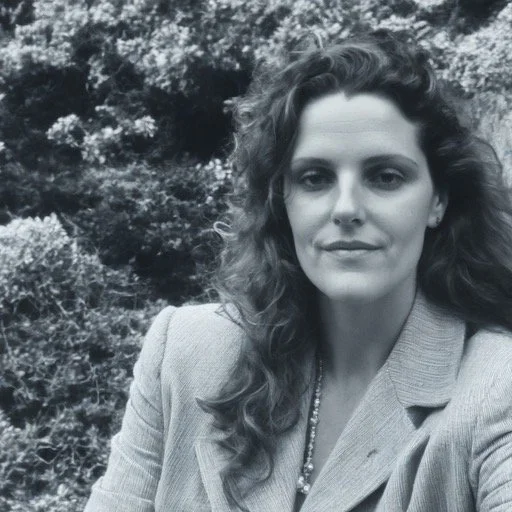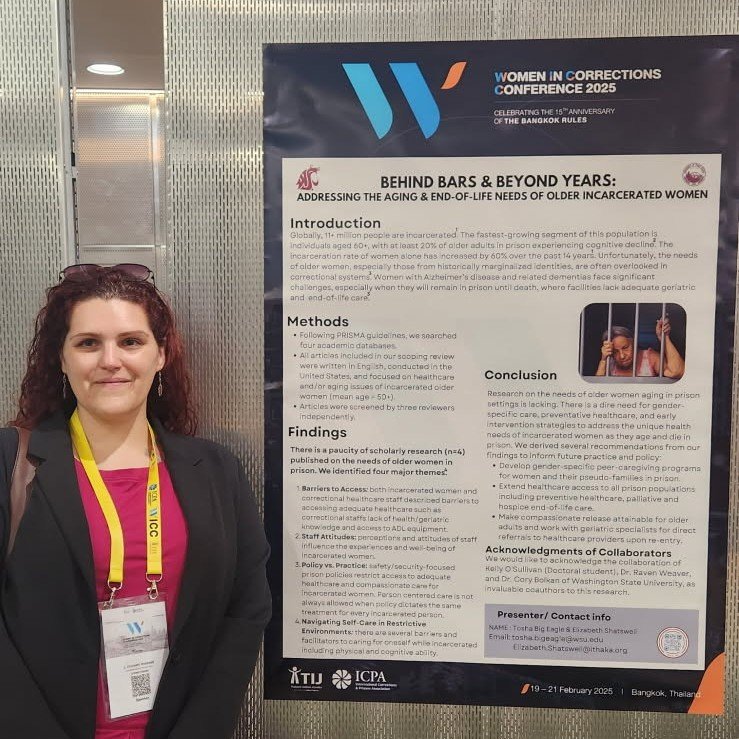Voices of Virginia Consensus: Elizabeth Shatswell’s Journey of Transformation Through Education
Elizabeth Shatswell, Correctional Education Manager, JSTOR Labs
Elizabeth Shatswell has a vivid memory of the day it hit her – the day she realized that there was a big world out there beyond the life she’d known. Beyond her old neighborhood. Beyond the prison cell that had become her home since she was 17.
Shatswell’s in-prison tutor had given her a fifth-grade-level book about Greece, and suddenly there was a giant world of possibility that ignited something inside her.
“It was such a monumental shift in my life,” she remembers. “There’s a moment when it hits you and the floor falls out, and for me, I had a total meltdown anxiety attack, and the room was spinning, but in a good way.”
Having been issued a de facto life sentence (55 years) as a teenager, a neglected adolescent with the equivalent of a fifth-grade education, Shatswell had never let herself dream beyond the walls that confined her life. But that one book – nurtured by a kind and generous tutor – opened wide the door to education, taking her on a path that she never knew even existed.
New Possibilities
Over the years to follow, Shatswell took full advantage of the educational opportunities that were made available through the prison system. But she was not content to pursue the vocational track, or Career Technical Education (CTE), which is the predominant educational option in prisons. She recognized that reaching her full potential would mean challenging herself beyond skills education for a specific trade.
“There’s academic education. There’s vocational education, and then there’s digital literacy skills,” Shatswell says. “Focusing on workforce [training] is great, but if you can’t think and don’t know the world is as big as it is, then your workforce is limited to what they can do, even in the vocational sense. If you don’t have the digital skills to access the machines or write up a report that uses academic skills, then you’re out of luck. So, if you want a well-rounded employee that can be self-sufficient, you have to provide all three types of education, and that’s often lost in the conversation.”
Determined to immerse herself in any educational possibilities before her, Shatswell realized it would not be without its share of challenges. First came overcoming her own self-doubt that she was smart enough to succeed in the classroom, a lack of confidence that her tutor helped dispel. Then came the practical hurdles – prison eligibility requirements, the timing and availability of specific educational tracks, and, importantly, the financial means to pay her own way.
Overcoming Hurdles
“It took me 10 years to finish my first associate’s degree for multiple reasons,” Shatswell says. “One was access – I was never eligible because of my [sentence] time and random infractions – and another was the fact that courses were self-pay. I think sometimes there’s this falsehood that education is free to everyone inside, but that is not the case. Education should be free to everyone, especially when you consider that recidivism rates drop 60% for people who have a degree.”
Ultimately, Shatswell served 23 years of her 55-year sentence before earning her parole. By the time she was released, she had earned three associate’s degrees, five vocational degrees and the beginnings of a bachelor's degree (since completed). She graduated Magna or Summa Cum Laude at every institution. At one community college, she was the valedictorian of her class.
Today, not quite two years out of prison, she is the Correctional Education Manager for the JSTOR Access in Prison initiative, a program that offers online and offline research library resources to incarcerated individuals. She currently manages about 1,500 sites in 23 countries. She is also an academic researcher, affiliated with the University of Puget Sound, studying the impact of the prison healthcare system-- a topic of interest linked to her own personal experiences.
“I just got back from Thailand from presenting my research at the first ever international women's corrections conference about my health care program,” she says. “Not bad for somebody who went in with a fifth-grade education. For me, education went far beyond simply having something to do. Education changed my trajectory.”




